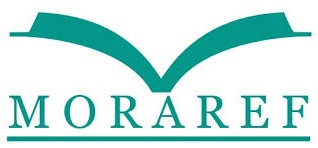American Academy of Pediatrics. (2014). Literacy Promotion: An Essential Component of Primary Care Pediatric Practice. Pediatrics, 134(2), 404–409. https://doi.org/10.1542/peds.2014-1384
Bronfenbrenner, U. (1979). The ecology of human development: Experiments by nature and design. Harvard University Press.
Bukhari, M. I., & Muslim, I. H. (n.d.). Shahih Bukhari dan Muslim (Edisi terjemahan).
Copple, C., & Bredekamp, S. (2009). Developmentally Appropriate Practice in Early Childhood Programs Serving Children from Birth through Age 8 (3rd ed.). National Association for the Education of Young Children (NAEYC).
Donker, M. H., Griffith, A. K., & Grolnick, W. S. (2013). Parenting practices and child literacy development: A longitudinal analysis. Journal of Applied Developmental Psychology, 34(5), 231-238. https://doi.org/10.1016/j.appdev.2013.05.003
Febriani, R. (2020). Dampak Tekanan Akademik Terhadap Minat Baca Anak Usia Dini. Jurnal Psikologi Perkembangan, 9(1), 45–52.
Hasanah, U., & Supriyanto, A. (2022). Efektivitas Pelatihan Psikoedukasi Pengasuhan Terhadap Pengetahuan Orang Tua. Jurnal Psikologi Insight, 24(1), 67–75.
Indoposco. (2024). Anak usia dini yang dibacakan buku masih rendah. Indoposco.id. https://www.indopos.co.id/nasional/2024/02/02/anak-usia-dini-yang-dibacakan-buku-masih-rendah/
Kompas. (2023). Minat baca anak Indonesia masih rendah, peran orang tua krusial. Kompas.com. https://www.kompas.com/edu/read/2023/09/08/113000571/minat-baca-anak-indonesia-masih-rendah-peran-orang-tua-krusial
Kraft-Sayre, M., & Pianta, R. C. (2000). Enhancing the transition to kindergarten: Linking children, families, and schools. University of Virginia.
Kurniawati, D., Yulianti, K., & Rizki, A. (2021). Keterlibatan Orang Tua dalam Menyiapkan Keterampilan Literasi Anak Usia Dini. Jurnal Obsesi: Jurnal Pendidikan Anak Usia Dini, 5(2), 1560–1570. https://doi.org/10.31004/obsesi.v5i2.918
Lukens, E. P., & McFarlane, W. R. (2004). Psychoeducation as evidence-based practice: Considerations for practice, research, and policy. Brief Treatment and Crisis Intervention, 4(3), 205–225. https://doi.org/10.1093/brief-treatment/mhh019
O'Callaghan, E., McIvor, C., McVeigh, C., & Rushe, T. (2016). Promoting emergent literacy skills in preschool children through a parent training program. Early Child Development and Care, 186(11), 1809–1820. https://doi.org/10.1080/03004430.2015.1137000
Piaget, J. (1964). Cognitive development in children: Development and learning. Journal of Research in Science Teaching, 2(3), 176–186. https://doi.org/10.1002/tea.3660020306.
Powell, D. R., Son, S. H., File, N., & San Juan, R. R. (2010). Parent–school relationships and children's academic and social outcomes in public school pre-kindergarten. Journal of School Psychology, 48(4), 269–292. https://doi.org/10.1016/j.jsp.2010.03.002
Sénéchal, M., & LeFevre, J. A. (2014). Continuity and Change in the Home Literacy Environment as Predictors of Growth in Vocabulary and Reading. Child Development, 85(4), 1552–1568. https://doi.org/10.1111/cdev.12222
Snow, C. E., Burns, M. S., & Griffin, P. (1998). Preventing Reading Difficulties in Young Children. National Academy Press.
Suggate, S. P. (2010). Why what we teach depends on when: Grade and reading intervention modality moderate effect size. Developmental Psychology, 46(6), 1556–1579. https://doi.org/10.1037/a0020612
Whitehurst, G. J., & Lonigan, C. J. (1998). Child development and emergent literacy. Child Development, 69(3), 848–872.
Wasik, B. A., & Hindman, A. H. (2011). Improving vocabulary and pre-literacy skills of at-risk preschoolers through teacher and parent interventions. Journal of Educational Psychology, 103(2), 455–469. https://doi.org/10.1037/a0023067
Vygotsky, L. S. (1978). Mind in society: The development of higher psychological processes (M. Cole, V. John-Steiner, S. Scribner, & E. Souberman, Eds. & Trans.). Harvard University Press.
Yoshikawa, H., Wuermli, A. J., Britto, P. R., Dreyer, B., Leckman, J. F., Lye, S. J., Ponguta, L. A., Richter, L. M., & Stein, A. (2018). Effects of the Global Early Childhood Development Interventions on Parental Behaviors and Child Outcomes: A Meta-analysis. The Lancet Global Health, 6(1), e36–e47. https://doi.org/10.1016/S2214-109X(17)30403-0
Yuliana, M. (2022). Peran orang tua dalam meningkatkan minat baca anak usia dini. Jurnal Pendidikan Anak Usia Dini, 6(1), 35-
 (Universitas Islam Mulia Yogyakarta)
(Universitas Islam Mulia Yogyakarta) 








.png)









